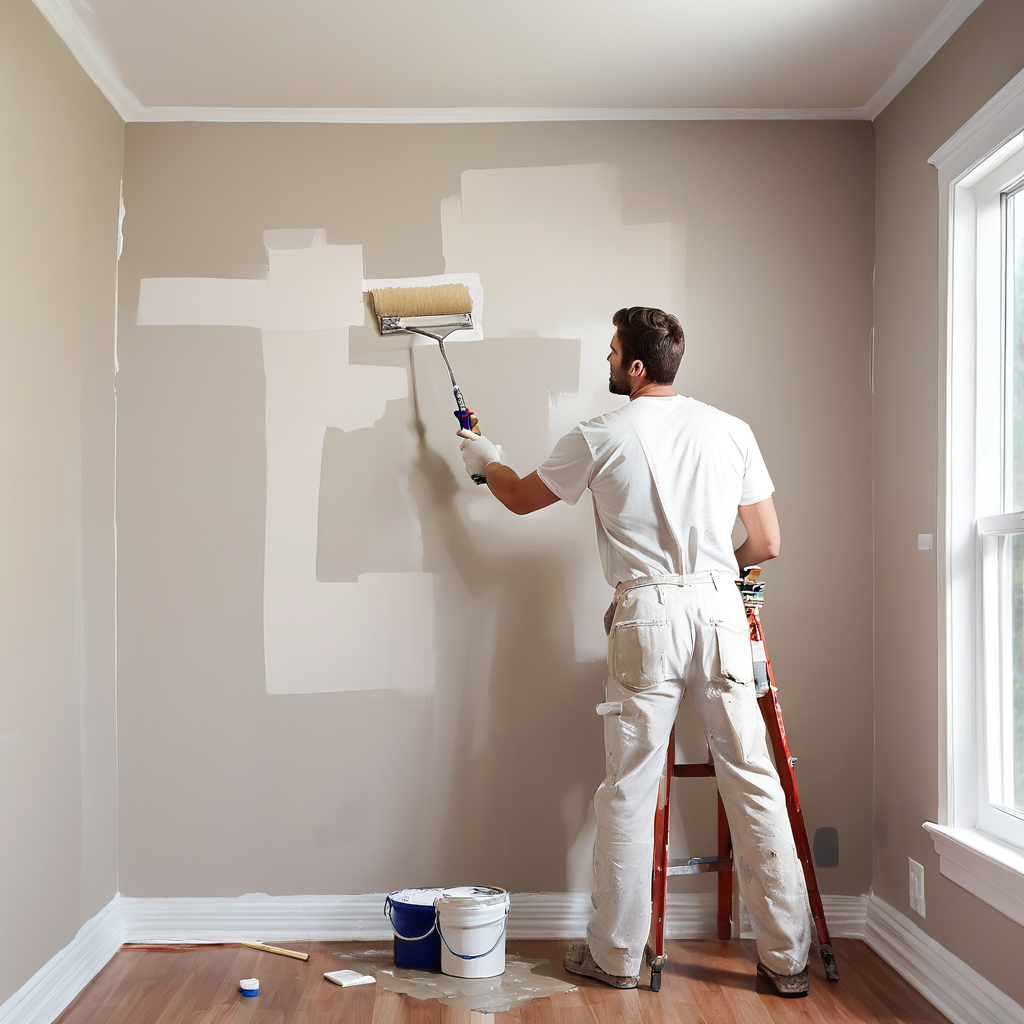
When it comes to painting projects, choosing the right tool can make all the difference in achieving a professional-looking finish. Paint sprayers, paint rollers, and brushes are all popular choices, each with their own set of pros and cons. Let’s delve into the advantages and disadvantages of each method to help you decide which one is best suited for your next painting venture.
Paint Sprayer:
Pros:
1. Efficiency: Paint sprayers are incredibly efficient when it comes to covering large surface areas quickly. They can deliver a smooth, even coat of paint in a fraction of the time it would take with a roller or brush.
2. Versatility: Sprayers work well for a variety of surfaces, including walls, ceilings, fences, furniture, and more. They can easily reach tight or intricate spaces that might be challenging for rollers or brushes.
3. Professional Finish: Using a paint sprayer can result in a professional-looking finish with minimal effort. The fine mist of paint creates a smooth and uniform appearance without brush marks.
Cons:
1. Overspray: One of the main drawbacks of paint sprayers is the potential for overspray, which can lead to wasted paint and a messy work environment. Proper masking and preparation are essential when using a sprayer.
2. Learning Curve: Mastering the technique of using a paint sprayer takes time and practice. Achieving an even coat without drips or runs can be challenging for beginners.
3. Cleanup: Cleaning a paint sprayer thoroughly after each use can be time-consuming and require specialized solvents or cleaning solutions.
Paint Roller:
Pros:
1. Easy to Use: Paint rollers are beginner-friendly and require minimal skill to achieve a satisfactory result. They are ideal for painting large, flat surfaces such as walls and ceilings.
2. Cost-Effective: Rollers are an affordable painting tool that can be reused multiple times with proper care. They are also readily available at most hardware stores.
3. Even Coverage: When used correctly, paint rollers can provide a consistent and uniform coat of paint, especially on textured surfaces like stucco or popcorn ceilings.
Cons:
1. Limited Reach: Rollers may struggle to reach narrow or tight areas, such as corners, edges, or uneven surfaces. This can result in the need for additional touch-ups with a brush.
2. Time-Consuming: While rollers are efficient for painting large surfaces, they can be time-consuming when it comes to intricate details or trim work. Multiple coats may be required for full coverage.
3. Texture Variation: Depending on the nap (thickness) of the roller cover, the finish can vary from smooth to slightly textured. Achieving a perfectly smooth surface may be challenging with a roller alone.
Paint Brush:
Pros:
1. Precision: Paint brushes offer unmatched precision and control, making them ideal for detail work, trim, and edges. They allow for clean lines and sharp corners that can be difficult to achieve with a roller or sprayer.
2. No Overspray: Unlike sprayers, brushes produce minimal overspray, reducing paint wastage and the need for extensive masking.
3. Touch-ups: Brushes are perfect for touch-ups and small areas that require a delicate touch. They are also great for working around obstacles or areas where a roller cannot reach.
Cons:
1. Labor-Intensive: Using a paint brush for larger surfaces can be labor-intensive and time-consuming. It may not be the most efficient option for covering extensive areas.
2. Visible Brush Strokes: Brush marks can be visible on the painted surface, especially if the paint is not applied evenly or if the wrong type of brush is used.
3. Skill Dependent: Achieving a smooth and professional finish with a brush requires skill and practice. Beginners may struggle to avoid drips, brush marks, or uneven coverage.
In conclusion, each painting tool has its own set of advantages and disadvantages, making them suitable for different types of projects. For large surfaces and efficiency, a paint sprayer may be the best choice. For precision and detail work, a paint brush is ideal. And for a balance of ease of use and cost-effectiveness, a paint roller is a reliable option. Ultimately, the best tool for your painting project will depend on your specific needs, skill level, and the desired outcome. Whichever method you choose, proper preparation, technique, and quality materials are key to achieving a professional finish.
Cedar Hill St. Louis Jefferson County Olivette Kirkwood Ballwin Arnold Franklin County St Charles County Fenton High Ridge Dittmer Creve Coeur
